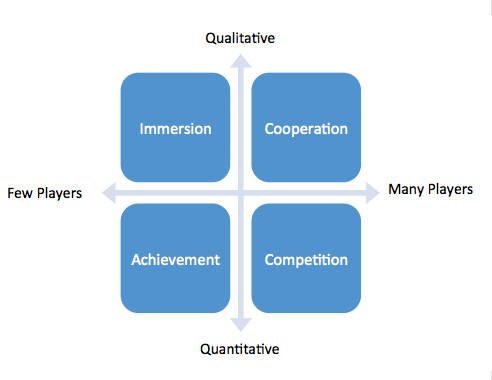I’m currently writing some scenarios for the future of gaming and have found a few things rather useful. The first (thanks Andrew) is a good starting point for looking at gaming motivations, although it’s not especially practical for scenarios because there is no obvious continuum for measuring potential drivers and also why do the motivations behave the way that they do? Simple demand and supply drivers are looking like a better bet.
If you are interested in game player motivations, the link to Richard Bartle is worth following.
The second useful thing is a talk by Jesse Schell (thanks Ross) who is a games designer and Professor at the Entertainment Technology Center at Carnegie Mellon University. I really suggest that you listen to this, although, personally, I’d skip his introduction and listen to the last ten or twelve minutes where Schell goes a little bonkers (but not much) about the potential for gamification. What he is saying, essentially, is that life itself becomes a game, although who controls everything is potentially the stuff of Orwellian nightmares.
If you are interested in following this there’s a great article in Foreign Policy on Big Data that’s worth reading.
BTW, I saw an interesting programme on television the other night. It was a countdown of video games that changed the world (video games? – quaint classification nowadays don’t you think?). Anyway, guess what the number one game was? Twitter. Makes sense when you think about it. Facebook too. And this blog.


